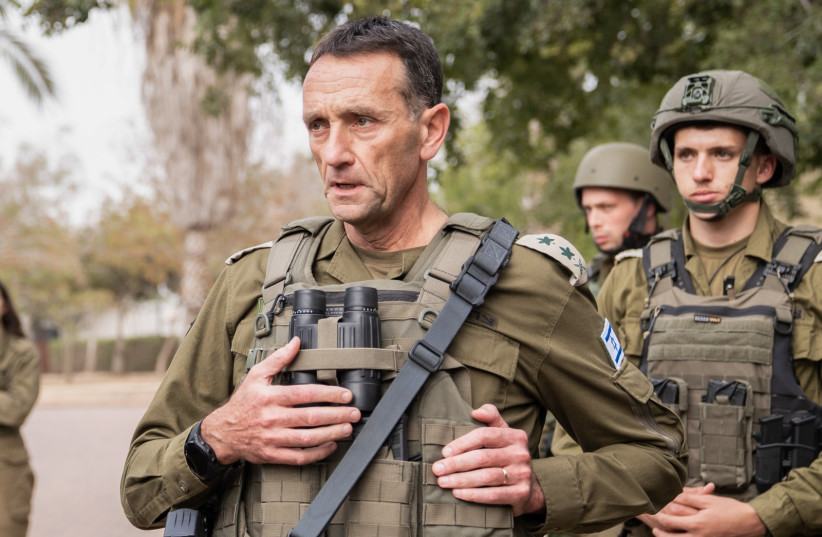For several days now, I've found it hard to believe the reports and interpretations on TV networks, social media, and during discussions with family and friends. The events of 2024 are overwhelming. It will take weeks, maybe even months, to truly grasp the significance of these events, the magnitude of the surprise, the extent of destruction, the depth of sorrow, the injuries, and the number of soldiers, commanders, men, women, and children taken to the Strip. In its 75th year, Israel underwent a generational traumatic event that will be historically equated with the Holocaust and the Yom Kippur War.
What happened to us?
The surprise: Mighty Israel, with its formidable, moral, technologically advanced, and well-equipped army—and its sophisticated intelligence services—was jarringly blindsided by a searing strategic surprise from a neighboring terrorist organization. This shock surpassed even that of the Yom Kippur War since it came from a smaller terror group than Hezbollah, not a sovereign state. This unexpected turn of events will be analyzed in depth.
The misconception: Both the political and military leadership held a belief that an economic balance involving goods intake, labor exports, and Qatari funding would tame Gaza and Hamas between military operations. This belief was misguided. It became evident that Hamas's main objective isn't the well-being of Gazan citizens under their care, but rather to obliterate Israel and decimate its populace.
The obstacle: We invested NIS 5 billion in an underground barrier to counteract the tunnels. Still, terror managed to breach the fence after disabling electronic systems and sensors, taking over several bases in Israel. In doing so, Hamas exhibited the might of simplicity, catching Israel off-guard with its overwhelming strength.
The initial reaction: The IDF was caught off-guard—unprepared and in a state of routine readiness. Soldiers and commanders responded late, and the air force operations were delayed. Civilians, including men, women, and children, had to fend for themselves, facing terrorists directly in hand-to-hand combat until reinforcements arrived. The anguished calls from security rooms in kibbutzim echoed the distress signals from soldiers during the 1973 war. This initial response eroded public confidence in the IDF, necessitating a profound investigation and consequential lessons.

Why did it happen?
Firstly, we are encircled by enemies with extremist ideologies, supported by Iranian inspiration and funding, intent on our annihilation. It's as simple as that. Over the past year, the current government has embraced a destructive agenda, detached from reality, targeting the Supreme Court and its President Esther Hayut as national adversaries instead of Hezbollah and Hamas. Our downfall was also due to our complacency, arrogance, and overconfidence, deeming ourselves the neighborhood's dominant force. Additionally, recent civil protests and societal rifts within the IDF, along with neglected external threats, occupied the military's attention.
What now?
The military effort: It's paramount. The goal is to leverage the full military might in Gaza and, if necessary, in the North, to neutralize threats for the foreseeable future and demonstrate to our enemies that Israel remains strong, agile, and unified. Despite the severe setback in Gaza— which will be scrutinized further—we can trust the IDF. The entirety of Israel stands with them. We have no other army and no other nation. We simply don't have a choice.
The civilian effort: This is underway, albeit sluggishly. Certain government offices are underperforming critically. Except for the Ministries of Defense, Foreign Affairs, and Health, relevant governmental bodies remain inactive, and their ministers seldom visit the South. The void left by the government is being filled by proactive citizens, setting personal examples in the absence of leadership. Thousands of volunteers in myriad initiatives are rallying support for the IDF, aiding the afflicted kibbutzim and moshavim, advocating for the civilian sector, and explaining Israel's stance to the world. The disgrace stemming from the appointment of ill-suited individuals will be revisited.
The political effort: It necessitates an adept, experienced war cabinet singularly focused on the nation's security. With former IDF chief's of staff and now politicians, Benny Gantz and Gadi Eizenkot, leading in this unity government, I am more reassured.
Brigadier General (res.) Avi Benayahu is a former Israel Defense Forces Spokesperson.
